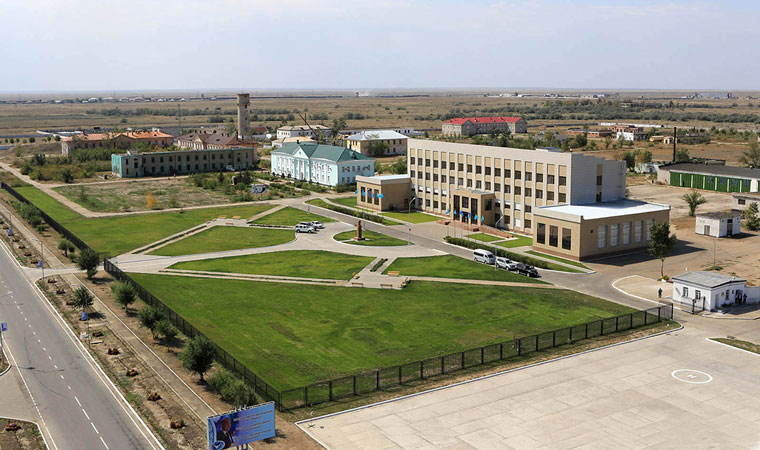
Kazakhstan interested in Russian research reactors
back to contentsRosatom’s delegation headed by Vyacheslav Pershukov, Rosatom Deputy CEO for Innovation Management, visited Kazakhstan to discuss joint efforts in the development and application of radiation products and solutions, particularly nuclear medicine.
Russian officials visited the Kazakhstan National Nuclear Center (NNC) in the well-known town of Kurchatov where they were demonstrated research carried out at the Semipalatinsk Test Site, a former testing venue for the Soviet Union’s nuclear weapons. They also had a tour to physical test facilities, an environmental radiation laboratory and a tokamak-based research facility, the Kazakhstan Material Studies Tokamak.
“Based on what I have seen, I can safely say that the progress achieved at the NNC over the last ten years is remarkable. They have developed a sophisticated radiation monitoring system and installed state-of-the-art control equipment. Many buildings in Kurchatov have been renovated. It is apparent that the town is growing. Many young researchers and professionals have been hired by the NNC to bring the average age of its staff down to 36 years. We have presented MBIR, a multipurpose fast neutron research reactor project, to our Kazakhstan colleagues, and I have to say that they show genuine interest in its joint development,” Pershukov said.
He noted that they discussed a number of civil nuclear projects to be developed jointly with the Kazakhstan Ministry of Energy. “We have discussed a procedure to coordinate an agreement between the governments of Russia and Kazakhstan on joint nuclear energy research. We have also noted real progress in improving our mutual understanding across the entire spectrum of points and issues, and hope that the agreement will be signed later this year,” Vyacheslav Pershukov concluded.
In the course of discussions, Kazakhstan representatives suggested expanding the agreement scope to cover nuclear and radiation physics research. The parties agreed to include a provision in the agreement to allow for Kazakhstan’s participation in the MBIR-based International Research Center. “It needs to be said that Kazakhstan is interested in joint nuclear medicine programs, including shipments of medical isotopes,” said Rosatom’s Deputy CEO for Innovation Management.




